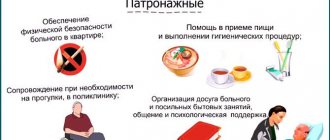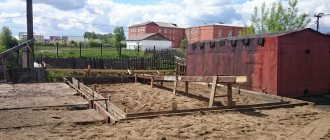Guardian - who are you?
In accordance with Article 35 of the Civil Code of the Russian Federation, a guardian can be:
- a person who has reached the age of majority (18 years old);
- capable;
- has no criminal record;
- a subject whose biography does not include the indicator “deprivation of parental rights.”
If a citizen falls under at least one of the listed factors, then submitting documents for guardianship is useless. Even if the guardianship staff makes a deal, it will mean that they have broken the law.
The legislation does not provide for other restrictions. But guardianship workers take into account the “human” factor. Namely:
- the future guardian himself must be physically and mentally healthy if he is caring for an incapacitated citizen;
- do not have bad habits or mental illnesses (they often ask for a certificate from a narcologist and psychiatrist);
- moral and ethical qualities.
Guardianship authorities give preference to people:
- who are in a close or family relationship with an elderly person;
- provided a medical record documenting the absence of various diseases (tuberculosis, malignant tumors, diabetes and other serious ailments);
- have a medical education;
- have completed special courses on caring for the disabled.
How to obtain guardianship for elderly parents
Guardianship is established with the aim of protecting the rights of an incapacitated citizen (Article 31 of the Civil Code of the Russian Federation). This means that this form of care cannot be issued for a legally capable person.
A prerequisite for assigning guardianship over a mother or father is the presence of a court decision on deprivation of legal capacity that has entered into legal force. At the same time, the court does not determine the candidacy of the guardian.
Whether a son can obtain guardianship over his mother is decided by the guardianship department at the citizen’s place of registration. The document confirming the existence of authority is a resolution of the local administration.
A child may be appointed guardian of incapacitated parents in the following cases:
- has reached the age of majority;
- not deprived of legal capacity;
- has a permanent income (in any amount);
- owns residential premises (by right of ownership or under a lease agreement);
- has a satisfactory state of health;
- has no outstanding criminal record;
- has no criminal record for a serious or especially serious crime;
- has no criminal record for crimes against the person, life and health of citizens.
Important! A child can be the guardian of both mother and father at the same time if they are both incapacitated.
A mandatory condition is the consent of the child to obtain guardianship. If he does not independently contact the guardianship department to formalize rights over incapacitated parents, then the function will be transferred to the head of a specialized organization.
Types of guardianship, list of documents to the social service
Guardianship can be of two types - full or partial guardianship. Partial guardianship is usually called patronage.
Patronage is partial guardianship provided to a citizen who needs constant care. The main condition is the desire of the elderly person himself. Patronage includes certain types of assistance (buying food and medicine, cleaning the house, running errands), but not constant round-the-clock support.
Full guardianship is established by the court, and the person in need of assistance is declared incompetent for health reasons (physical or mental). A person who has reached the age of 80, but is partially capable, also has the right to full guardianship.
Let's look at what documents the guardian needs to collect in both cases of guardianship.
Patronage
The package of documents for patronage includes:
- A copy of a passport or other identification document confirming the age of the future guardian.
- A certificate from a doctor, in which the doctor confirms the absence of serious illnesses and gives the person the right to act as a guardian.
- Additional certificates from a narcologist, psychiatrist and TB specialist.
- Certificate of no criminal record.
- Consent of the ward and his relatives.
- A contract agreement that sets out all the rights and obligations of the ward and guardian.
- Two statements: on consent to be a guardian and on the appointment of patronage.
Example of Guardian Approval Application
Example of an application for establishing patronage
Additional documents that are not mandatory, but give a high chance of granting guardianship:
- Characteristics from the place of work, neighbors or local commissioner.
- Autobiography.
- Certificate 2-NDFL (indirectly shows that the guardian acts on a voluntary basis).
Full guardianship
The list of documents for full guardianship duplicates the list of certificates for patronage, only with the mark “guardianship” and not “patronage”.
Additionally, documents are submitted to the court so that the judge recognizes the elderly person as incompetent, and then provides the guardian with the opportunity to exercise full guardianship.
The court also gives the right to dispose of the ward's property. Based on this, a corresponding agreement is concluded.
Three parties must sign it: the guardian, the relatives of the ward and two independent persons.
Who can be a ward?
Guardianship is one of the forms of social security for the interests of the ward, therefore the following persons can count on it:
- a child under the age of majority;
- a person declared incompetent;
- a citizen with a disability group;
- elderly person.
Regarding mother's guardianship, it is worth noting the situations when this relationship can be realized:
- when you have been in a state of serious illness for a long time that limits your legal capacity;
- in the case of reaching old age;
- if a woman has lost the ability to independently satisfy her own primary needs;
- in a situation where she was declared legally incompetent.
Important: if the court refuses to satisfy a petition to declare a person incompetent, he has the right to independently apply to the guardianship and trusteeship authorities with a request to appoint a guardian.
Procedure for issuing a guardianship permit
The algorithm of actions for registering guardianship is clearly regulated by Russian legislation. Sequence of steps:
- Determine the need for guardianship. Perhaps the ward himself or his relative will come up with such an initiative. The second option is for the court to make a decision on the need to provide the person under guardianship with round-the-clock assistance.
- Collect the necessary package of documents, depending on the upcoming type of guardianship. Come to a social institution in person to write an application and submit documents.
- Submit an application to the guardianship authorities for the registration of an elderly ward and submit the collected papers to the social service employees. Both parties to the agreement must write statements: the trustee and the ward. If the court has declared an elderly person mentally incompetent, then the appeal is written by the next of kin.
- Wait for the results of checking the documents provided, studying all the characteristics of the future guardian (place of work, salary, living conditions, moral qualities). This takes no more than 1 week.
- After this, the employees of the guardianship commission draw up a report on the examination and its result.
- The Guardianship Council reviews the documents and the examination report, on the basis of which it makes a decision on whether to allow the applicant guardianship (of one type or another).
From the moment the package of documents is submitted until the guardianship authorities approve the upcoming patronage, no more than 15 days pass.
Documentation
Registration of guardianship is quite a complex and troublesome matter, because a fairly large package of documents is required. It is important to know what documents are needed to obtain guardianship over an 80-year-old grandmother, as well as over any elderly person who requires guardianship.
The list of main documents includes the following papers:
- Passport of the elderly grandmother, as well as the future guardian and photocopies of all pages of these documents.
- An extract from the house register about the family composition of the future guardian, as well as the grandmother herself.
- Title documents for the property of a citizen in need of guardianship and a future assistant. If there is no property, documents are needed confirming the legal basis on which each of them lives in a certain residential area.
- Medical conclusions that the potential guardian is capable, mentally healthy and balanced, is not registered in dispensaries, and also does not have diseases that pose a threat to others. His presence next to the person under his care should not pose the slightest risk to his life and health.
- The original document and its copy confirming marriage for the future guardian.
- Characteristics from the employer stating that the person wishing to become a guardian has a certain work experience, is not a disciplinary violator and is a valuable employee.
- A police certificate stating that the future guardian has no criminal record.
- A certificate from social authorities stating that the potential guardian has not been deprived of parental rights.
- Written consent of all adult family members with whom the guardian lives that they do not object to their relative taking guardianship.
- The conclusion of guardianship specialists that the housing where the ward and the future guardian plan to live meets established sanitary standards.
- Medical or judicial confirmation that a given citizen needs guardianship.
Depending on the specific situation, as well as on the individual characteristics of each region, some other papers may be required to formalize guardianship.
Also, these documents may differ depending on the type of guardianship assigned.
“Am I a guardian or do I have the right”
Since the agreement is signed on a mutual, bilateral basis, the guardian and the ward have rights and responsibilities. But it is better to clearly state them when leaving the custody agreement.
An elderly person who needs guardianship and does not have mental disorders confirmed by the court has the right:
- choose a trustee at your own discretion, but in compliance with Russian legislation;
- terminate the existing contract at any time;
- assign your movable and immovable property to the guardian. If you have partial legal capacity, you must obtain the consent of close relatives.
Types of guardianship
A person to whom the relevant authorities have confirmed one or another type of guardianship has the right:
- manage the property and finances (pension, benefits) of the ward without the consent of employees of the special social service. The main conditions: do this in the interests of the elderly person and in such a way that he knows about it;
- act on behalf of your ward, act as his trusted representative when interacting with various authorities or services;
- live in living space belonging to the citizen under guardianship. And also take him to live with a guardian on his property;
- work. Guardianship does not oblige the guardian to quit his professional activity. As a rule, patronage does not interfere with work responsibilities. And guardianship, in which an elderly person needs round-the-clock assistance, can take up all the time of the guardian. Therefore, each person decides for himself whether he can combine care and work;
- receive remuneration for your work: either in the form of compensation for costs, or in the form of a state benefit. In any case, it is necessary to specify in the contract all possible monetary payments to the guardian for performing certain actions.
Questions
The most frequently asked questions regarding the registration of guardianship over a grandmother:
- Is a court order necessary to obtain guardianship over an 89-year-old incapacitated mother living with her children? If the court has already made a decision to recognize the mother as incompetent, then the next step will be to submit an application to the guardianship institution at the mother’s place of residence;
- Is it possible to carry out actions to sell the apartment of an 89-year-old grandmother, a disabled person of the third group, indefinitely, without her knowledge? If the grandmother has a guardian, he is required to obtain permission for the housing transaction from the guardianship institution.
Advantages, opportunities, benefits
Russian legislation does not provide separate benefits for a guardian. There are preferential concessions for the oldest citizen. This issue is regulated by the Tax Code (Article 217) and Federal Law No. 2001-I “On Taxes” (Article 4).
If an elderly person gives the right to a guardian to manage and dispose of his property, then tax breaks apply to the latter. Provided that the pensioner remains the owner of the property.
When paying benefits, they are guided by three legislative acts:
- Article 16 of Federal Law No. 48 “On Guardianship and Trusteeship”, which states that the performance of duties can be free of charge or for a fee. The payment procedure is established by the constituent entities of the Russian Federation;
- Decree of the President of the Russian Federation No. 175 “On monthly payments to guardians”;
- regional standards.
Decree No. 175 specifies the following benefit amounts:
- if an elderly person who is disabled from childhood is cared for by immediate relatives (parents, adoptive parents), then the amount of payments is 5,500 rubles;
- in all other cases, the benefit is 1200 rubles.
To receive remuneration from the state, the guardian must meet certain requirements:
- have no sources of income (work, social benefits, other sources);
- be of working age (women under 55, men under 60).
Other monetary payments are negotiated between the parties to the guardianship agreement: how much, for what and under what conditions the guardian receives money (clause 2, article 16 of the Civil Code of the Russian Federation).
The advantage of guardianship is the countable work experience. Although this advantage is “overgrown” with two mandatory conditions:
- an elderly citizen under guardianship must be 80 years old (RF Government Decree No. 555);
- An appropriate agreement must be drawn up with representatives of the special social service.
Peculiarities
Patronage and full guardianship are assigned free of charge . Only those citizens who are caring for an elderly person over 80 years of age have the right to apply for additional payment.
In this case, the guardian himself must be an able-bodied unemployed citizen . He should not even be registered with the Employment Center and receive benefits from them.
After the appointment of a guardian, representatives of the guardianship authorities are obliged to monitor the living conditions of the pensioner, as well as how and for what needs the guardian’s funds are spent under full guardianship.
If, during the inspection, serious gross violations are revealed several times, the guardianship authorities have the right to deprive the guardian of these rights.
Termination of patronage is carried out on the basis of voluntary termination of the contract between its participants.
The guardian is obliged to inform the guardianship authorities about all significant changes in the life of the ward.
The general responsibilities of a nursing assistant include the following:
- performing various legal assignments;
- performing various household and household tasks;
- informing the ward about the progress of all events affecting him;
- trust management of the ward's property with direct benefit to the owner.
All these responsibilities must be clearly stated in the concluded agreement between the assistant and the person under guardianship to avoid disputes between them.
The duties of a full guardian include absolutely all powers to provide his ward with normal, full-fledged living conditions.
At the same time, transactions with real estate and other valuables are unacceptable without obtaining the consent of the guardianship authorities.
It is very important for every elderly person that in his old age he has an assistant whom he can trust. Many old people are left without relatives, and there is absolutely no one to help them except social workers.
It is very important that the legislation provides for the legal possibility of transferring the responsibility of caring for an elderly person to another citizen. This makes old age easier for many pensioners.
Similar articles:
- Characteristics of the child to the guardianship authorities
- Application to the guardianship authorities about improper upbringing of a child
- Guardian report
- How to write an autobiography for the guardianship authorities?
- Foster family for the elderly and disabled
- Previous post When can you get guardianship over your mother?
- Next entry In what cases can guardianship of a child be granted while the parents are alive?
Comments on the article “How to obtain guardianship over a grandmother?”
Nobody has written anything yet. Be the first!
Benefits and payments
In the standard case, the child becomes a guardian without receiving any additional payments or benefits, especially in the case of caring for parents. Moreover, if a child takes care of disabled people of group 1, pensioners over 80 years of age and parents who need full outside care, then he can receive a compensation payment in the amount of 1,200 rubles .
The payment is due to the guardian only if he is able to work, but does not work and is not registered with the employment service.
There are no other payments provided for children who have received guardianship over their parents.
Additionally, some regions of the Russian Federation establish various benefits for guardians, which include:
- to pay transport tax determined in the region;
- medicines, medicines, treatment;
- free legal assistance;
- payment of state duties;
- payment of utilities.
You will need to find out what benefits are provided in the specific area of residence of the child and his parents by contacting the local administrative department.
Grounds for guardianship
From the moment of majority, every citizen acquires legal capacity.
This means that he can make transactions himself, acquire and dispose of property assets, and perform legally significant actions. However, an adult, like a minor child, can also become incompetent - this fact must be verified in court. Let us highlight the general rules for recognizing the incapacity of citizens, which will be the basis for the appointment of a guardian:
- circumstances leading to incapacity are recognized as mental disorder or mental illness that does not allow one to realize the nature and consequences of one’s actions;
- these factors must be recorded based on the results of medical examinations and examinations, and the final assessment must be made by the court;
- An application for the incapacity of a citizen can be filed by any interested person - as a rule, the applicant is the person’s relatives, and, in their absence, other persons.
A person can be declared incompetent only on the basis of a judicial act - after it comes into force, any transactions and actions performed by a citizen will be invalid. Limitation of legal capacity caused by medical factors is also possible. Once they are eliminated, all restrictions will be lifted.
Until a citizen's incapacity is revoked, his interests must be represented by a guardian. The responsibilities of a guardian include not only caring for the ward, but also managing his assets, disposing of property, and preparing legally significant documents. The appointment of a guardian in this case occurs not at the initiative of the incapacitated citizen, but at the request of relatives or other persons. The consent of an incompetent citizen to establish guardianship is not required, and he will be able to express his will only after the judicial act is canceled.
applications for declaring a citizen incompetent
For capable citizens, the appointment of a guardian follows different rules. First of all, such persons are required to consent to guardianship, or to submit an application themselves and indicate a specific guardian. For example, a mother can apply to appoint her son or daughter as a guardian, or indicate another person.
The grounds for appointing guardianship for capable citizens may be:
- loss of ability to work, including the determination of disability, which creates difficulties in caring for oneself and performing significant actions;
- a long-term illness during which the citizen is unable to carry out even the simplest actions (for example, if the mother cannot take care of herself due to chronic diseases);
- other circumstances entailing the need for outside assistance.
With this option, the citizen voluntarily agrees to the transfer of almost all powers, but can at any time cancel guardianship or change the guardian. For example, a competent mother can revoke guardianship from her son and change it in favor of her daughter.
Legislation
The issue of guardianship is covered in several legal acts.
The fundamental law is Federal Law No. 48 “On Guardianship and Trusteeship”.
Here the status of the guardian and trustee is determined and the basic requirements for the trustee are stipulated. Chapters 4 and 5 also outline the rights and responsibilities of all persons involved.
In addition to the above-mentioned legal act, the issue is covered by Chapter 20 of the Family Code, which also describes the obligations of the parties and the procedure for establishing the procedure for guardianship and trusteeship.
All other features arising from this issue are specified in Articles 31–40 of the Civil Code of the Russian Federation.
Requirements
The requirements for a prospective guardian are outlined in legal acts such as Federal Law No. 48 and the Family Code.
Guardianship of incapacitated persons or minors is established in accordance with the law and registration rules.
The action is carried out by the guardianship and trusteeship authorities.
A person who meets all legal requirements can become a guardian. Guardianship can only be arranged on a voluntary basis. Many people are ready to give up all their free time and devote it to caring for an elderly person, helping him in everything and protecting his interests.
Guardians can be either relatives of the person or third parties.
If an elderly relative is left without help, then you can arrange guardianship over him. Registration is carried out in the same way as for children.
The procedure does not affect the marital status of the guardian. It makes no difference whether the person lives with her husband or children. If a person meets the requirements set by law, then he has the right to formalize the procedure.
Requirements for the identity of a guardian are also regulated by the Civil Code. The main requirements are:
- adult citizens who have sufficient income to support the life of an elderly person;
- only a capable person who can help the ward in all necessary actions.
All this information is provided independently to the guardianship and trusteeship authorities after passing a medical commission. The transfer of information is carried out in writing, accompanied by a statement of desire to take guardianship of the grandmother.
The guardianship and trusteeship authority has the right to request information from various authorities to obtain information about the moral qualities of the trustee.
In addition to the above requirements, the guardian must have optimal living conditions for the ward to live. That is, the apartment must have a separate room for the ward or a sleeping place.
The state authority has the right to visit the territory of registration of the trustee and check it for compliance with the stated requirements.
The main requirement and condition is the attitude towards the future ward.
If the grandmother agrees to live with a guardian, then there will be no problems with registering guardianship, even if she is an incapacitated person and her consent is not required.
Rights and obligations
Many people who want to obtain guardianship over an elderly person are interested in the question of how to obtain guardianship over a grandmother.
Registration of the procedure is not the fastest task. But before doing this, you need to familiarize yourself with the legal basis of the issue and the rights and obligations of the parties. This is necessary to minimize the risk of conflict situations in the future.
If a person decides to become a guardian or trustee, then he needs to submit an application to the guardianship and trusteeship authorities.
If the trustee does not fully fulfill his obligations, he may be held liable for failure to comply with the law.
The guardianship procedure implies the appointment of partial or full provision for the ward. The guardian is obliged to act in the interests of the ward on the basis of the act.
After securing the issue with documents, the representative has the following obligations:
- make all transactions regarding their wards to meet the needs of the latter, in particular, the purchase of products, things and personal hygiene products;
- take care of the maintenance of an elderly person;
- perform the duties of the person under his or her care;
- defend personal and property rights;
- manage payments and compensation in the interests of the ward;
- apply to various government authorities with a request to restore the health of the ward with medication; action is also permissible in the event of the abolition of guardianship;
- dispose of real estate in the interests of the ward and take measures to protect it.
The law does not provide for the payment of monetary compensation for such actions. But in some cases it is possible to receive a monetary reward.
The representative has the right to donate his property to the ward only after drawing up a donation agreement.
The representative also has the right:
- draw up various appeals to government agencies requesting registration of pensions and benefits;
- demand financial compensation in case of material and moral damage;
- protect the property of the ward;
- contact law enforcement agencies on behalf of the ward;
- apply for civilian educational and medical services.
The legislation in force in Russia does not allow two parties to enter into transactions if the ward is considered incompetent. Registration is possible only with prior receipt of permission from the guardianship and trusteeship authorities.
Let's sum it up
Thus, in order to obtain guardianship over your elderly parents, you will need to declare them incompetent by going to court. Next, you need to visit the department of the guardianship authorities, providing the necessary package of documents. If the child’s living conditions are satisfactory, and he meets the requirements for potential guardians, then guardianship officials will make a positive decision. From this moment on, the child is endowed with certain rights and responsibilities.
There are no special benefits or allowances for guardians, even if they provide care and support for persons with disabilities of groups 1 and 2 and the elderly.
If the child does not want to continue to fulfill his guardianship duties, he may refuse to do so. It is enough to contact the guardianship authorities with an application and the necessary documents. No one has the right to force him to take care of his parents.











